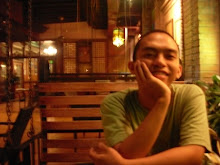 (third of the four-part series)
(third of the four-part series)Second Stage
In the previous stage, questions might obscure clarity, especially to the extent that our minds inexhaustibly generate them. Finding ourselves amid this challenge, we are now beginning to start an exciting journey. Questions won't end unanswered. They are, in fact, beginnings. The word "question" has the same root origin of the word "quest." A quest is waiting for us. The outpouring of questions is like a spring that seeks ways to where it should flow. The flow is unpredictable, as it appears chaotic and random until it becomes evenly flowing. This flow is the Exploration stage.
Again, let's examine the word "explore." It comes from the word explorare which means "to cry out." Ancient hunters used the word to refer to searching someone in the wild. To put it in context of Pathfinding, we are in the stage of crying out the questions and searching for answers. Now, we do not just let the questions rotten our spirits. We cry them out to the world. Someone will hear and will know that we are in the verge of discovery.
Exploration stage is the stage of seeking answers. Like a flowing water, the whole process is unpredictable and nonlinear. It does not go in a straight line. It branches out and expands. Whenever we seek answers, we seek diverse possibilities. We cannot anymore rely on central concepts or sources, for they prove not their unreliability, but their rigidity. Our inner knowing feels that there must be another way of articulating a certain truth. This expands our consciousness to a rich variety of understanding.
As a result of exploration, we encounter many ways of expressing truth. Religions, philosophies, sciences, and arts are all human achievements in response to the call of Pathfinding. These achievements have their own degrees of differences . They have different branches that embody reinterpretations of the previous patterns of understanding. Nothing is ever a singular concept or way. Throughout history and evolution of human thought, the need to change and to expand has always been anticipated. It may disrupt the ongoing process, yet it paves the way to newer and bolder processes.
Many of us have begun our own explorations. Exposure to an organized religion, its rituals and dogmas have helped us seek further meaning. We also cross the boundaries of these beliefs, so we can have the glimpse of the colorful landscapes of other traditions. We experimented on doctrines to match its compatibility with our set of values and convictions. Later, we begin to ground ourselves with knowledge that have been preserved and taught by devout followers. We are exposed to practicing certain rites we fervently believe will give us answers. When we feel comfortable of its eccentric practices and languages, we prefer to stay longer and let the wisdom of that tradition take root in our consciousness.
Some of us are estranged with many religious traditions, so we choose secular approach to spirituality. We seek wisdom as we sift them from the vagaries of psychology, philosophy, and even popular culture. The intellectual voices of our modern times speak to us with familiarity and wit, and touches our deeper perception towards the hazy truths we long to understand. We churn out fragments of truths to explain realities bit by bit. We mix up a hodge podge of concepts and systems to comprehend our complex experiences.
 Into the melange of innumerable views, we are determined to discover something. This is our persevering human spirit during the Exploration stage. We are clueless and yet almost certain that we can find something out of hindsight of our seemingly lost search for truth.
Into the melange of innumerable views, we are determined to discover something. This is our persevering human spirit during the Exploration stage. We are clueless and yet almost certain that we can find something out of hindsight of our seemingly lost search for truth.Apparently, we are caught with these pluralistic diversity. We begin again to question our quest, as we feel incredulous of the progress we make. We are now much more hesitant to move and more suspicious of finding and proving the sources of truth. We often ask: How truthful is this truth? Why does the truth I have found rings conflict with other truths? Do I really need to do a lot of rituals or defend numerous doctrines just to seek and know the truth? Do I need to read thousands of books and scriptures and participate on different gatherings and lectures so I can understand? Why is it that the more I seek, the more I get lost? Then perhaps, underlying these confusions, there must be an absolute truth. And that call to the absolute has never before boomed in the middle of loud existential noises.
At this point, we feel that all our efforts are useless. Exploring these endless, rugged terrains of knowledge eventually becomes nonsense. We've had enough of all information from theories and techniques diverging from different branches, each contending with another, because we see more contradictions than consensus. We clearly see the patterns moving to different directions, yet something emerges. These processes of knowing are like rivers pulled into the centermost of its source, the vast sea of wisdom from which all knowing comes. Somehow, it defies the way we understand Pathfinding, for we have started our spiritual adventures outbound in searching something that will explain everything. Yet the directions we externally trailed are definitely illusions. We are soon to discover that journeying outside has long been leading us to journey inside. Finally, after these long current of exploration, we arrive in the deep, unlimited origins of our souls: the ocean of Enlightenment.
(to be concluded)










0 comments:
Post a Comment